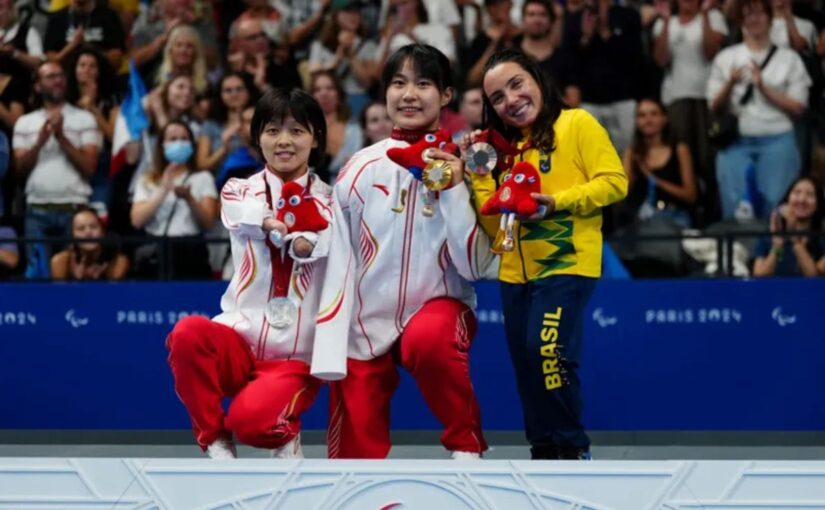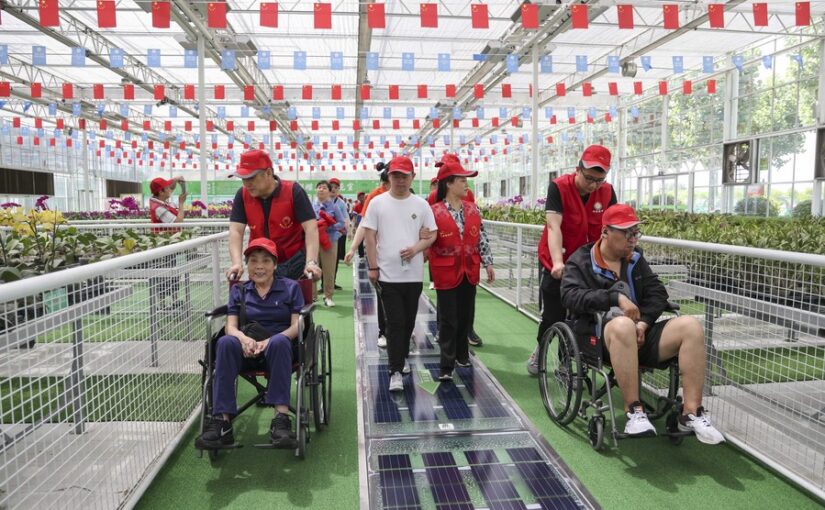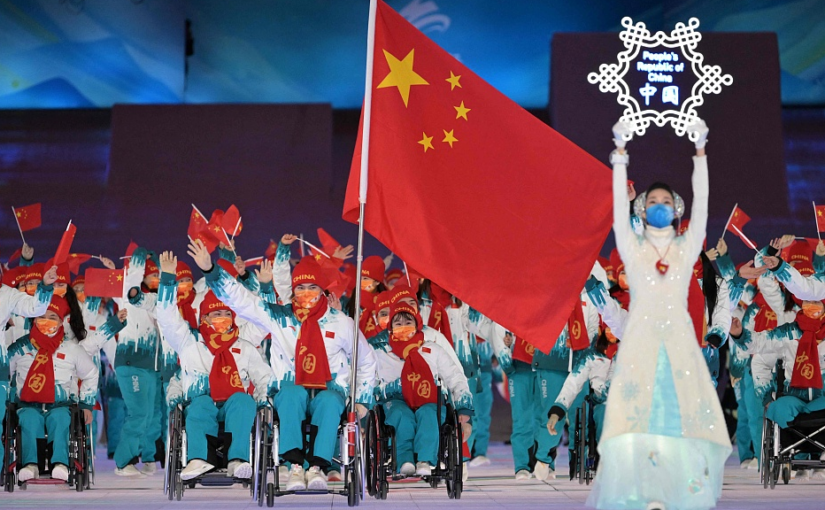The following article, republished from the Brazilian online newspaper Brasil de Fato, explores the reasons for China’s stunning success at the 2024 Paralympic Games in Paris, where the country won 222 medals, including 95 golds. This was the sixth consecutive time that China topped the medal table at the Paralympics.
The article notes that “as part of efforts to eradicate extreme poverty, support for people with disabilities has increased in recent years in China”. While this support of course includes improving accessibility and service provision, the 14th Five-Year Plan for the Protection and Development of People with Disabilities also focuses on physical activity and sports participation.
The author goes on to cite Wu Yandan, a professor at Fujian Normal University, who explains that sports training also aims to improve people’s general living conditions. “The four motor activity movement modules include hitting, kicking, agility and movement. Combined with the movements of daily life, they help improve the ability to take care of oneself in the future.”
All in all, China’s successes at the Paralympics imply an impressive commitment to the all-round wellbeing of people with disabilities.
China topped the medal table at the Paralympic Games for the sixth consecutive time, winning 95 golds, 75 silvers, and 52 bronzes in Paris, totaling 222 podium finishes. Great Britain came in second with 49 golds, 45 silvers, and 31 bronzes, making 125 medals.
The Chinese success in Paralympic sports is multifactorial. One of the reasons is the adoption of policies to eradicate extreme poverty and tackle inequality. As part of efforts to eradicate extreme poverty, support for people with disabilities has increased in recent years in China. The 14th Five-Year Plan (from 2021 to 2025) has several sections focused on protecting and rehabilitating people with disabilities. The text also includes improvements in access to social security, employment and basic services.
In China, there are more than 85 million people with disabilities. During the previous Five-Year Plan period (2016-2020), 7.1 million people with disabilities living in rural areas were lifted out of extreme poverty. In addition, almost 2 million were employed in urban and rural areas, according to data from the State Council.
The recent Third Plenary Session of the Twentieth Central Committee of the Communist Party of China also emphasized the need to develop these policies.
The resolution of the third plenary – whose goals must be met by 2029 – states that better services will be provided to the elderly population facing special difficulties, “including those who live alone, have disabilities or suffer from physical handicaps.” It also says that “the introduction of insurance schemes for long-term care” for these populations will be accelerated.
Promoting physical activity among people with disabilities
In addition to improving access to services, the so-called 14th Five-Year Plan for the Protection and Development of People with Disabilities focuses on physical activity and sports participation among people with disabilities in the country.
The plan states that sports rehabilitation and fitness services for people with disabilities should be promoted, as well as measures to strengthen research into sports aimed at this population.
The goal is to include what the Chinese government refers to as “mass sports” for people with disabilities in the national development strategy.
International and regional sporting events have been examples of incentives to engage the population in sports-related activities. The Asian Paralympic Games, held in Hangzhou in 2023, for example, served as a boost for organizing sports activities for people with disabilities in communities in that Chinese city. Around 100,000 people took part.
Another example was the city of Chengdu’s organization of a Special Olympics basketball event in 2022, with twelve teams from all over China.
Wu Yandan, a professor at Fujian Normal University, explains that the training also aims to improve people’s general living conditions. “The four motor activity movement modules include hitting, kicking, agility and movement. Combined with the movements of daily life, they help improve the ability to take care of oneself in the future,” she says.
The Winter Paralympics are another example of how China uses sporting events to boost capacity building.
In 2015, the country’s capital, Beijing, was selected to host the Winter Olympics and Paralympics for the first time. China went from a country that had never won a medal at the Winter Paralympics to topping the medal table in that same edition.



